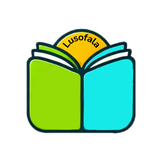
3 simple techniques to memorise Portuguese vocabulary.
Discover 3 simple and effective techniques to better memorise Portuguese vocabulary. Learn to master the Portuguese language with practical and accessible methods that will help you enrich your vocabulary.
Glaucia Fernandes
1/17/20252 min read


One thing I learned when I was a foreign language student myself is that my memory needed to be “trained.” Indeed, in our daily lives, we naturally develop the vocabulary of our mother tongue without needing to practice (well, except for exams at school or the stories organized by the teacher to make the parents cry 😅). Other than that, it’s thanks to daily exchanges, what we read, listen to, or experience that our language evolves (I’m summarising, as the subject could be more complex than that). In short, the environment we are in greatly contributes to the development of our language.
However, when we learn a foreign language (except in immersion in the native country, where the techniques are different), we need to give our brain a little help to retain what we learn. Here are some simple tips I’ve prepared to help you! ✨
Use flashcards and spaced repetition
Do you have sticky notes at home to make little flashcards? A piece of paper and some tape work too! Then, write down the key words you've recently learned. Be careful not to write too many. Sort them well, which will make the next step I’ll mention in point 2 easier.
Once your words are written, review your cards at your own pace. Reread them, relying on context (this will make the learning process more interesting and therefore more consistent) 💡. To make it easier for you, I wrote the book 365 Words in Portuguese to help you develop your vocabulary (1 day = 1 word learned 😎). You can check it out by clicking here.
Organise by themes
In my opinion, reading a list of words just for the sake of it won’t help you much. Organise them by themes. No need to dig out Grandma’s old notebooks (unless, of course, you want to 😉), but use a simple tool like the notes app on your phone. Create a note for each theme: travel, work, health, etc.
With every new word learned and retained, add it to the corresponding note. Simple, right?
Let’s not forget that, when we were children, words made sense to us because they were part of a known context, something we experienced or saw.
In my book +400 Verbs in Portuguese, I share various verbs among the most commonly used in daily life. They’re already organised by themes with their French translation. Honestly, I’m making it easy for you, friends! 😄 Check it out by clicking here.
Use association techniques
When I was in high school, I had to memorise a lot of definitions, important dates in history, concepts, and so on. My dad taught me a great technique: association. He used to say, “My daughter, choose a keyword to summarise what you’ve learned, then associate it with an image.” And honestly, it made my life so much easier for passing exams, but also for my adult life (thanks, Dad!! 🥰).
Always try to link the learning of a foreign language to something familiar to you. It’ll make the process simpler and even fun!

